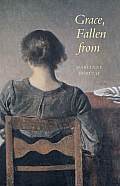With its focus on China, NER 36.2 brings us up close to an old, new world of art and history, nature and poetry. Also in this issue, we traverse our own country from the Atlantic to the Pacific with authors as they remember collective pasts, brave their own presents, and escort the most foreign of foreigners from our halls of ivy to our backroads theaters. The new issue of NER has just shipped from the printer and a preview is available on our website. Order a print or digital copy today!
POETRY
Kazim Ali • David Baker • Christopher Bakken • Joshua Bennett • Bruce Bond • Luisa A. Igloria • Vandana Khanna • Rickey Laurentiis • Katrina Roberts • Ed Skoog • Xiao Kaiyu (translated by Christopher Lukpe) • Ya Shi (translated by Nick Admussen) • Yin Lichuan (translated by Fiona Sze-Lorrain)
FICTION
Steve De Jarnatt • Joann Kobin • Carla Panciera • Sharon Solwitz • Michael X. Wang.
NONFICTION
• Wei An’s ruminations on nature just north of Beijing (translated by Thomas Moran)
• Wendy Willis on Ai Weiwei’s blockbuster show at Alcatraz
• Marianne Boruch discovers the diagnostic value of poetry
• Interpreter Eric Wilson relives the encounters of a Faeroese poet with American activists, academics, and alcohol
• James Naremore considers the considerable Orson Welles at 100, looking beyond Citizen Kane
• Jeff Staiger makes a case for how The Pale King was to have trumped Infinite Jest
• Camille T. Dungy is more than welcomed to Presque Isle as she finds herself in Maine’s early history
• “The Gloomy Dean” William Ralph Inge revisits Rome under the Caesars
Order a copy in print or digital formats for all devices.
